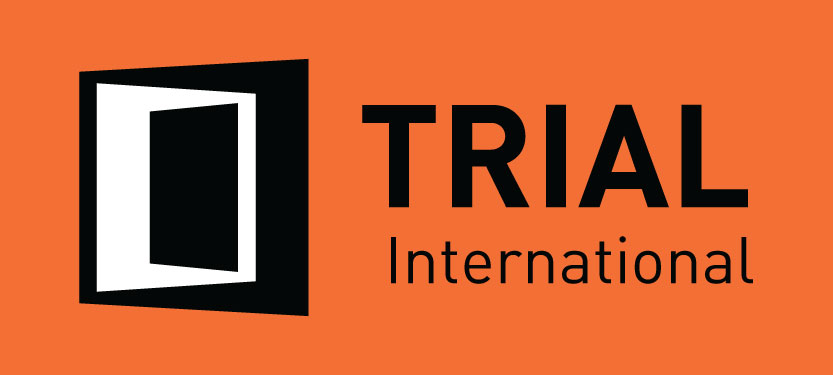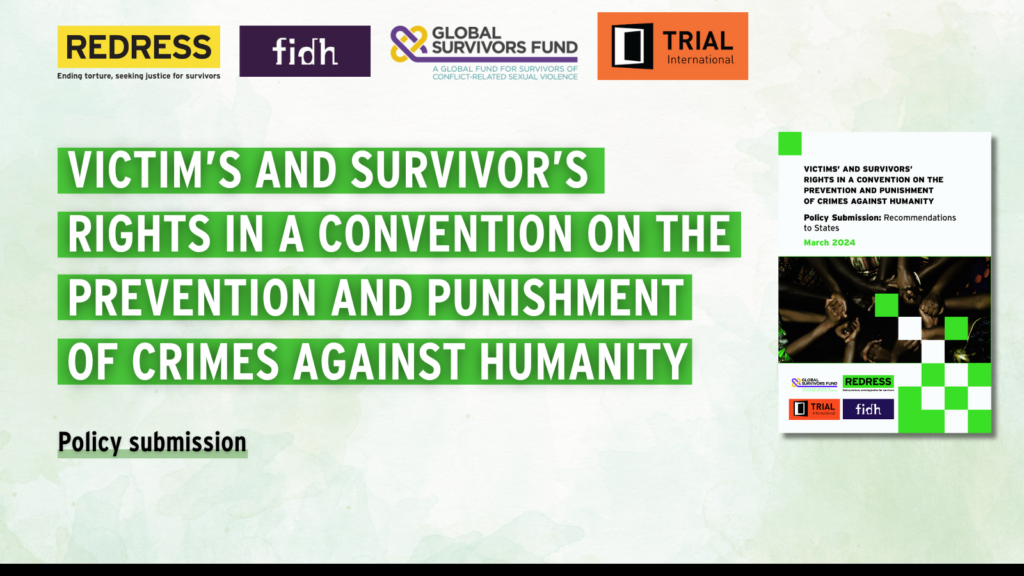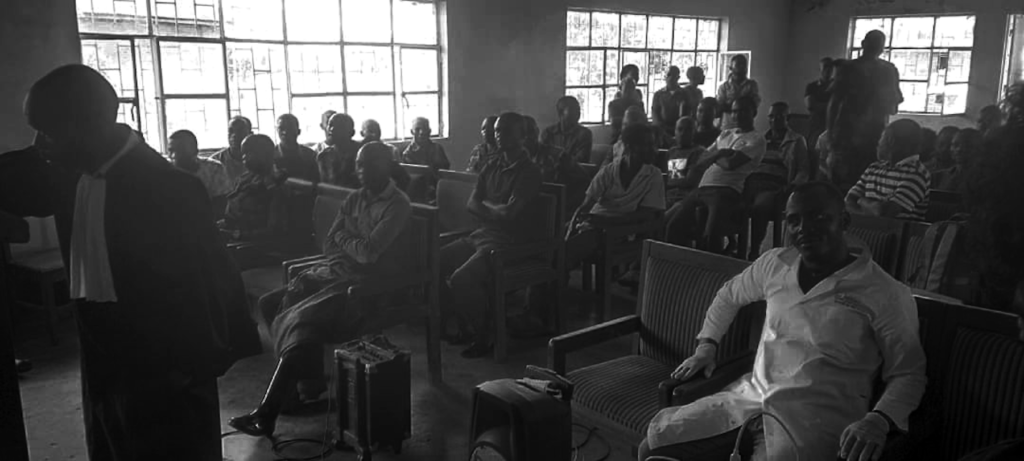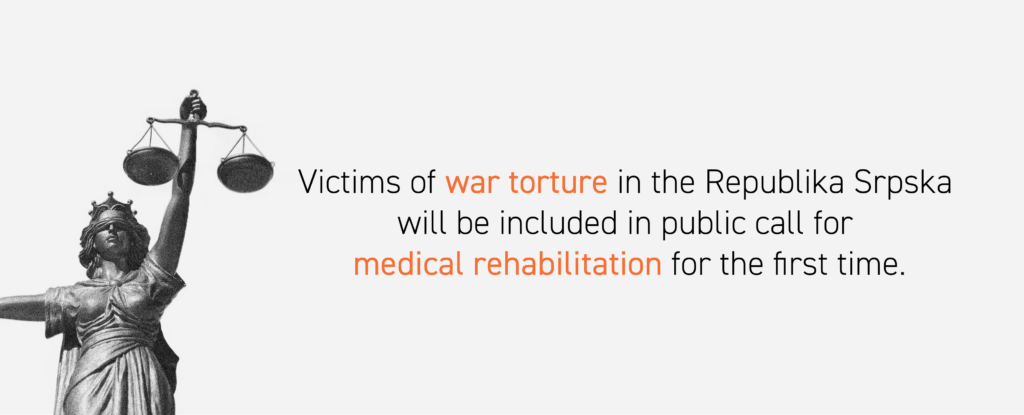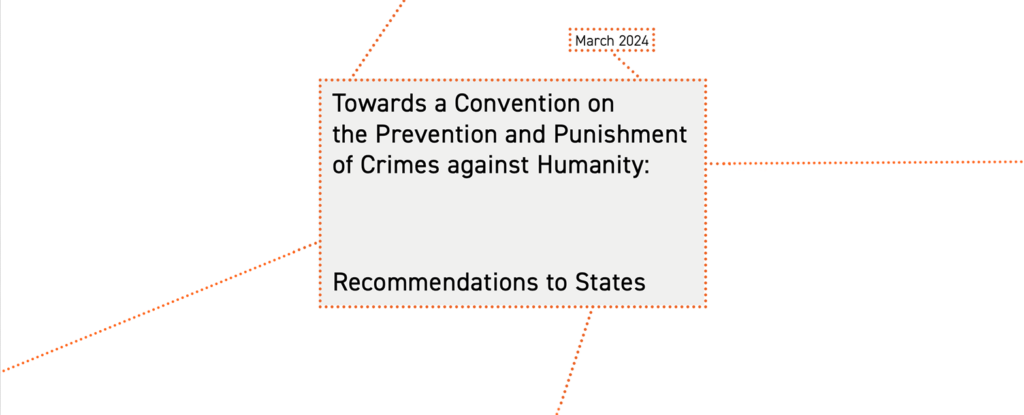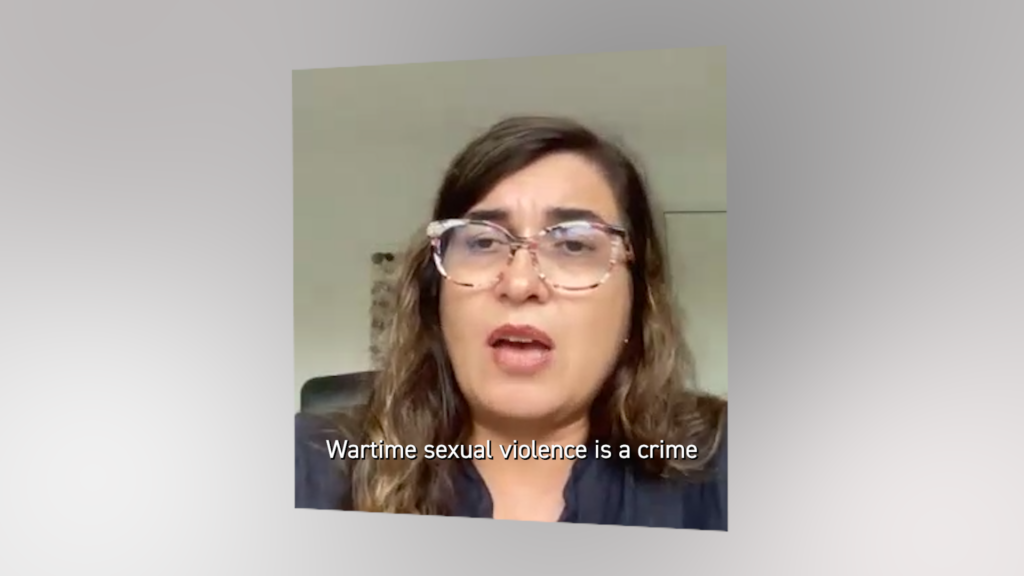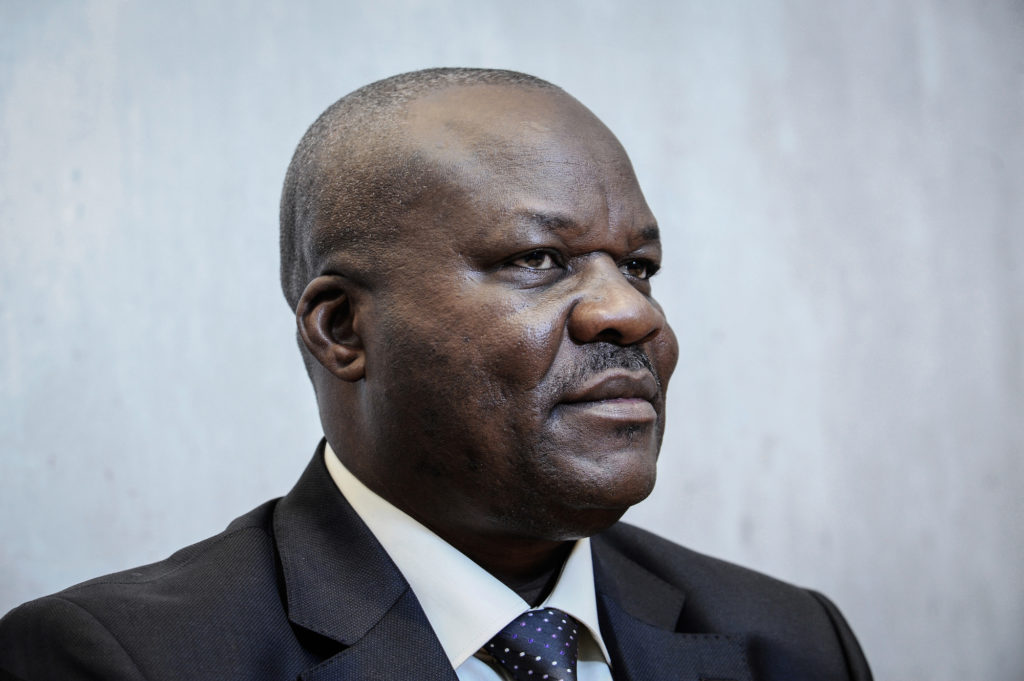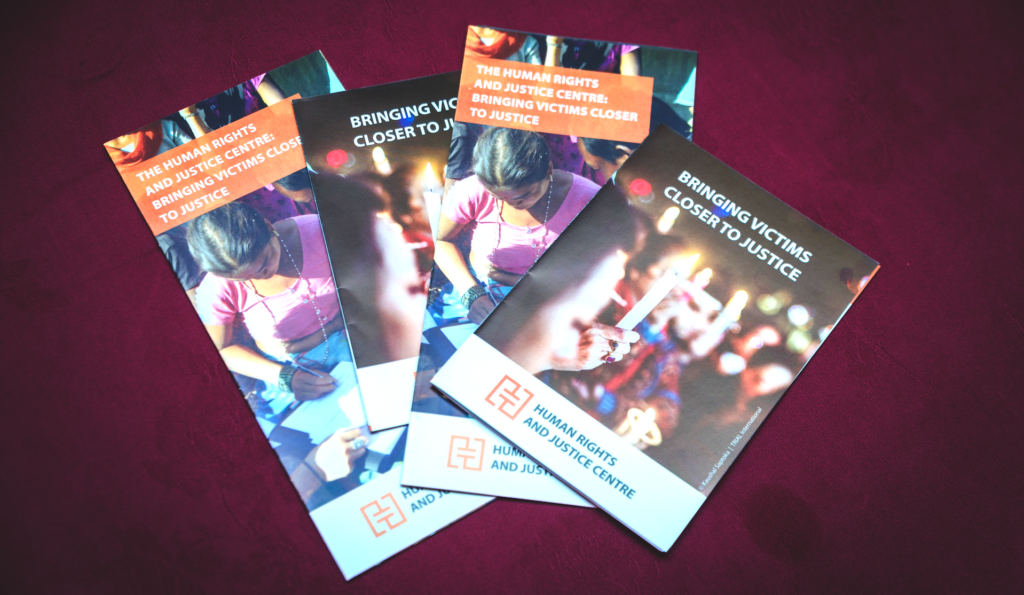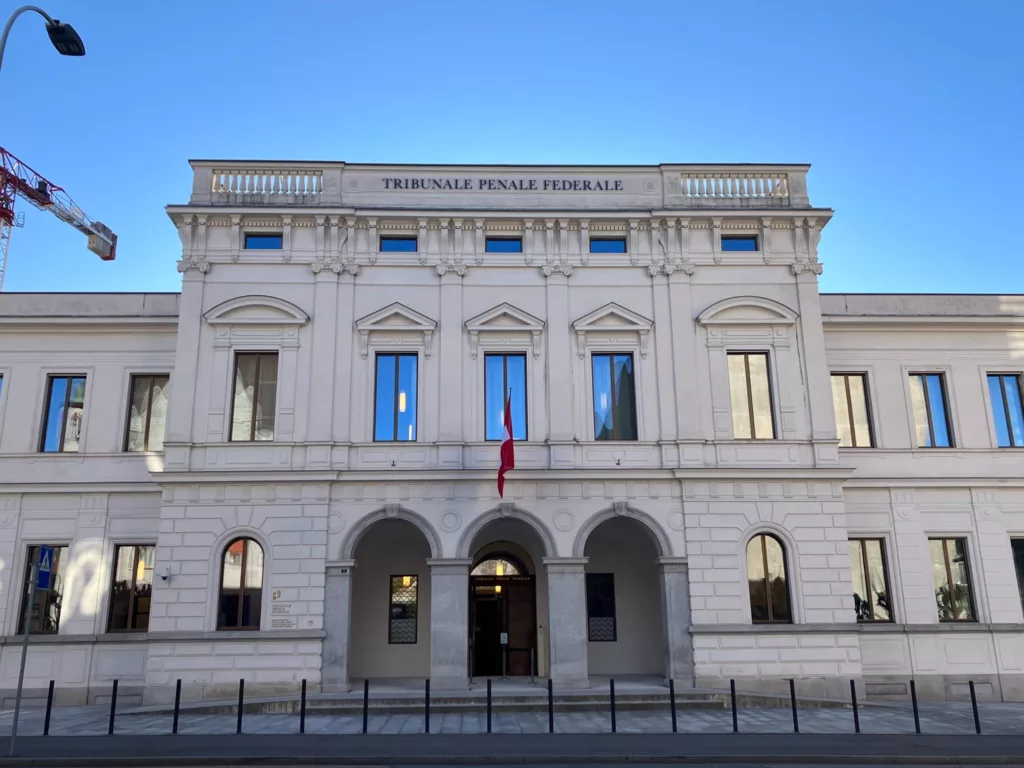The Bralima trial in the DRC: three militiamen convicted for crimes against humanity.
On March 1, 2023, three militiamen from the Raia Mutomboki Bralima armed group were convicted by the Military Tribunal of Bukavu (South Kivu province) of crimes against humanity. The three defendants were sentenced to between ten and twenty years in prison for murder, rape, sexual slavery, torture and other inhumane acts.
The court also condemned them to pay reparations ranging from 1’700 to 4’000 USD to the twenty victims represented at the trial. The Congolese State was found responsible and was ordered to pay for all the psychological and medical support required by victims still suffering from the consequences of the aforementioned acts.
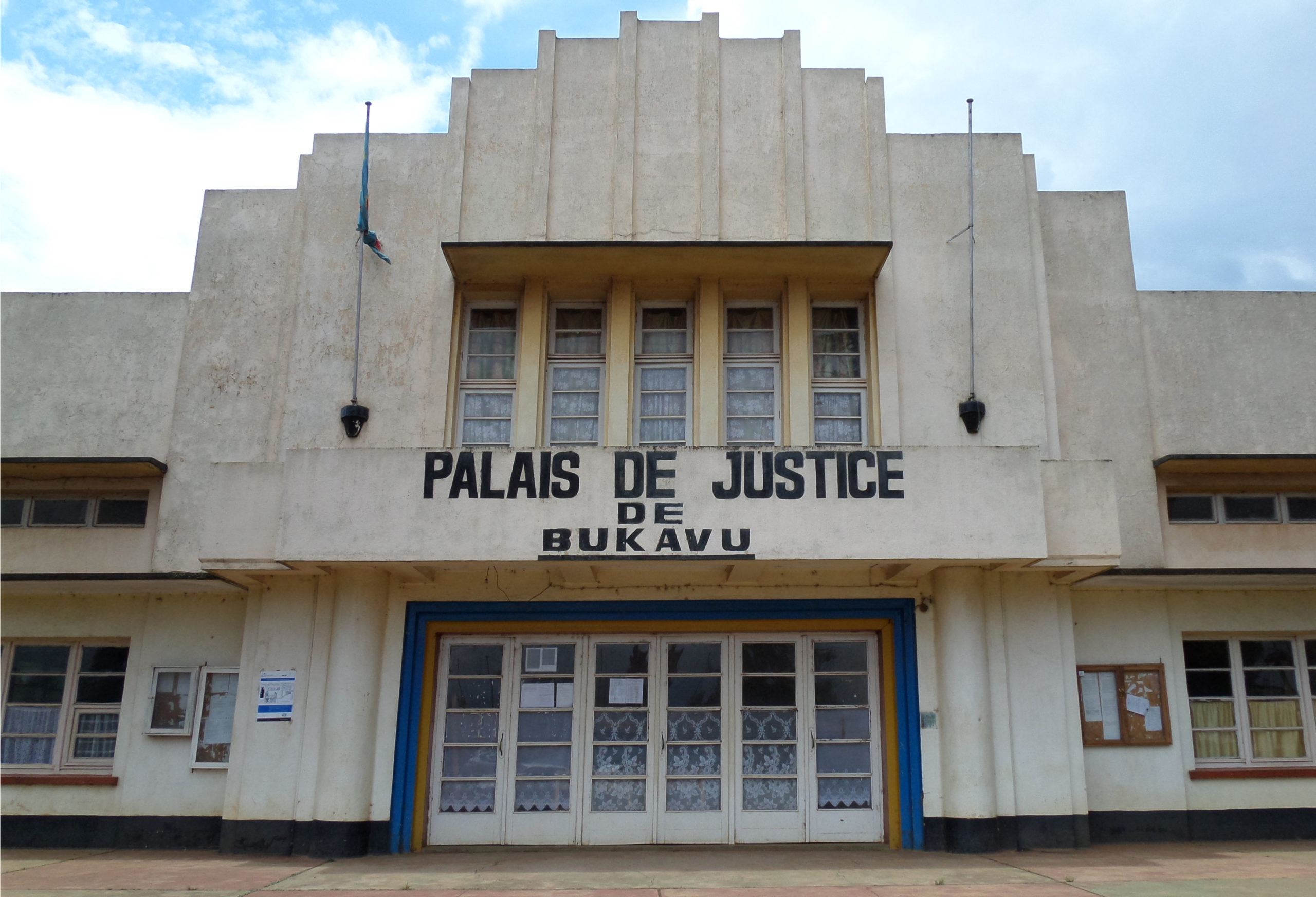
© TRIAL International/Daniel Perissi
The Raia Mutomboki in South Kivu
The Raia Mutomboki are local self-defense movements organized into armed groups operating in eastern DRC, particularly in South Kivu province. These groups developed between 2011 and 2012 in response to the takeover of mining centers and attacks on the population by the Rwandan militia FDLR (Democratic Forces for the Liberation of Rwanda) that were facilitated by a security vacuum caused by the reorganizing of the Congolese Army.
The expansion of these self-defense movements attracted members of the political and military elite. Several national army commanders have defected to join them and have contributed to their development by recruiting local youth and taking control of major mining concessions and other natural resources.
Several dozen Raia Mutomboki groups have operated in South Kivu in recent years. Coalitions have sometimes formed but were short-lived as each group has its own structure and ambitions.
Repeated attacks between 2017 and 2021
In 2016, the Nindja region in the territory of Kabare experienced political tensions following the death of its local traditional chief and the struggle for his succession. The Raia Mutomboki Bralima group decided to get involved in the conflict by supporting one of the contenders for the position.
During the years 2017 to 2021, the militia launched repeated attacks against the civilian population of multiple villages in the territory of Kabare. During these attacks, the militia stripped all victims captured, burned the population’s houses, looted their livestock, abducted women and girls who were raped and enslaved.
The judicial process
Local NGOs had documented the crimes committed by the Bralima group and other militias operating in the same territory and had submitted criminal complaints to the justice authorities. Because state forces were not stationed in these areas, the individuals responsible for these crimes were only arrested after intense clashes and a collective surrender of several militiamen to the local base of the UN peacekeeping mission in DRC (MONUSCO) in 2021.
Of those who surrendered, three individuals were identified as active fighters belonging to the Bralima group and were recognized by the victims as being among those directly responsible for the crimes. Following additional investigations conducted between 2022 and early 2023, the prosecuting authorities sent the three defendants to trial that was held by mobile court in Walungu in February.
TRIAL International supported the Congolese NGO that documented the crimes and supported the victims so that they could participate in the trial, as well as coordinated the work of the lawyers’ collective that represented the victims as civil parties throughout the judicial process.
“The victims’ lawyers, supported by TRIAL International, obtained the separation of two ongoing judicial proceedings against two different factions of the Raia Mutomboki militia. This facilitated the corroboration of the criminal responsibility of the three defendants who were members of the Bralima armed group while establishing the responsibility of the Congolese state for not preventing the commission of crimes in this part of the national territory. We will work to ensure that the crimes committed by other factions of the Raia Mutomboki movement are brought to justice in accordance with the law,” said Ghislaine Bisimwa, TRIAL International’s legal advisor in the DRC.
This verdict comes in the wake of other trials conducted by the Congolese justice system against Raia Mutomboki leaders in recent years, including the Kokodikoko case in 2019 and the Hamakombo case in 2020. There are several ongoing proceedings involving other Raia Mutomboki groups.
TRIAL International’s work on this case is conducted within the framework of the South Kivu International Criminal Justice Task Force, an informal network of international actors who collaborate to support the work of Congolese courts in the investigation and prosecution of mass crimes in the DRC.
